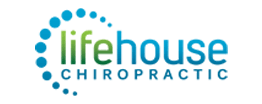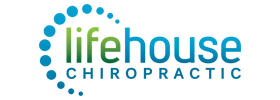The Power of Chiropractic Adjustments....affects the Vagus Nerve

The Way I See It…
I had a patient with a seizure disorder. Over time with chiropractic care, his seizures dramatically reduced in frequency and severity. Eventually when under regular chiropractic wellness care, he was seizure free. If he missed a scheduled appointment for a specific chiropractic adjustment, he would have a seizure. Who would think that chiropractic could help those with a seizure disorder?
There is a fairly new field of research. Doctors can now implant patients with a device that delivers electronic stimulation to the Vagus nerve, sometimes referred to as, a pacemaker for the brain that prevents seizure activity. [1] Chiropractors know that specific chiropractic adjustments could have a significant impact on the function of the Vagus nerve. Not only have I seen it in my office, but the research is now providing the evidence that chiropractic adjustments can help seizures and epilepsy, perhaps through the same mechanism. In 2001, a literature review published in the Journal of Manipulative and Physiological Therapeutics reported that 88% of the patients (children) experienced a significant reduction in the frequency and severity of their epileptic seizures. [2] In 2010, a case study demonstrated improvement in a young woman with a seizure disorder after she received upper cervical chiropractic manipulation. [3] Chiropractic care may represent a non-pharmaceutical or non-surgical approach for epileptic patients. Chiropractic adjustments affect the Vagus Nerve and that has the power to positively impact us all!
The Science Behind It…
What happens in Vegas may stay in Vegas, but what happens in the Vagus nerve doesn’t stay it the Vagus nerve. The Vagus nerve is one of the largest nerve systems, and is so named because it wanders like a vagabond, sending out nerve fibers from our brain to all the organs in our body.
The Autonomic Nervous System (ANS) is responsible for the involuntary functions of our body. The ANS controls our heart rate, breathing, digestion, hormone release, etc. The Parasympathetic Nervous System (PNS) and the Sympathetic Nervous System (SNS) are part of the ANS. The general function of the PNS is to control homeostasis and the body’s rest-and-digest response, kind of like a brake pedal. The general action of the SNS is to mobilize the body’s fight-or-flight-or-freeze response kind of like the gas pedal.
The Vagus nerve provides the gateway between the SNS and PNS parts of the ANS. It’s like a central switchboard that directs impulses going to and from the body and signals to and from the brain. It oversees a vast range of crucial functions, communicating nerve impulses to every organ in your body. It is not surprising, then that impaired functioning of this nerve can lead to many different conditions and problems. [4]
At any given moment, your nervous system is determining whether you are in danger or not, and then responds accordingly. If the nervous system thinks you are in danger, it will always favour the survival mode, flight, flight or freeze. The survival mode acts through the SNS.
We can run into trouble because our nervous system is also plastic. Imagine trying to bend a plastic fork lightly without breaking it. It will return to its normal shape. If you keep doing this over and over again, it will eventually create a bend in the plastic. Your nervous system is the same. The more it uses the protection side, the more survival becomes your default setting. [5]
Living in survival mode means high blood pressure, indigestion, auto-immune flare ups, chronic ear infections, insomnia, cardiovascular disturbances, infertility, PCOS, anxiety, ADHD, autism, inflammation, allergies, learning disorders, memory and concentration issues, emotional imbalances, anger, problems with sugar control, hormonal imbalances. When we are in survival mode, it is almost impossible to move toward growth and repair.
Modern civilization pushes us into survival mode. We need to find ways to tone down the survival mode, and express the growth mode.
The Vagus nerve’s main role is calming you down through the PNS. If we can stimulate the Vagus nerve, we promote calmness in our nervous system, and this will allow for growth, healing and happiness.
The strength of your Vagus response (vagal tone) can be measured by heart rate variability (HRV). Heart rate variability is directly related to the body’s interdependent regulatory systems and ultimately, their efficiency and health.[6] “An optimal level of HRV within an organism reflects healthy function and an inherent self-regulatory capacity, adaptability, or resilience,” McCraty and Shaffer write. [7]
HRV can be used to assess your nervous system, which controls and coordinates your heart. Your body is a self-healing, self-regulating organism. That self-healing, self-regulating ability is organized and coordinated via your nervous system. Your ability to live and heal is based on your ability to adapt to life’s challenges. HRV is a great tool to assess nervous system adaptation. The more you are able to switch back and forth and maintain a balance between the PNS and SNS sides of the nervous system, the better you will be able to heal, recover and repair. The more you default to one side or the other, the more you may struggle with your health and getting well.
Healthy people don’t have less stress in their lives, they are better able to handle stress. The more adaptable your nervous system the better your body can handle life challenges.
The act of “Vagus Nerve Stimulation” is a pretty hot topic these days in the research world. It’s showing promise for so many things, but what you may not know is that the stimulation doesn’t have to be an implant or invasive. Regular chiropractic care increases your Vagus nerve activity. A study in 2006 monitored HRV, an indicator of Vagus nerve activity, and found that patients who received regular chiropractic care showed improved HRV. [8]
The health of our Vagus nerve is responsible for so much, it only makes sense to want to keep it functioning at a peak level.
In today’s ever increasing and stressful world, you can’t afford NOT to know how your nervous system and spinal cord is doing. When was the last time you had your nervous system checked by a chiropractor?
References:
[1] http://www.epilepsy.com/learn/treating-seizures-and-epilepsy/devices/vagus-nerve-stimulation-vns
[2] Pistolese, R. (2001). Epilepsy and seizure disorders: A review of literature relative to chiropractic care of children. Journal of Manipulative and Physiologic Therapeutics. 24(3), 199-205. doi: http://dx.doi.org/10.1016/S0161-4754(01)06188-7
[3] Crisp, C. A., Hubbard, T. A., & Vowles, B. (2010). Upper cervical chiropractic care for a 25-year-old woman with myoclonic seizures. J Chiropr Med. 9(2), 90–94. doi: 10.1016/j.jcm.2010.03.001
[4] http://mentalfloss.com/article/65710/9-nervy-facts-about-Vagus-nerve
[5] http://www.morehealthlesshealthcare.com/functional-chiropractic/Vagus-baby/
[6] https://www.heartmath.org/articles-of-the-heart/science-of-the-heart/article-explains-importance-of-heart-rate-variability-for-your-health/
[7] McCraty, R., Shaffer, F. (2015). Heart Rate Variability: New Perspectives on the Physiological Mechanisms, and Assessment of Self-Regulatory Capacity and Health Risk. Glob Adv Health Med. 4(1), 46-61.
[8] Zhang, J., Dean, D., Nosco, D., Strathopulos, D., Floros, M. (2006) Effect of chiropractic care on heart rate variability and pain in a multisite clinical study.J Manipulative Physiol Ther. 29(4), 267-74.
CONVENIENT
OFFICE HOURS
Give us a call and let's find out how we can make your time in our office as convenient for you as possible.
Monday
7:30am - 11:00am
3:00pm - 6:00pm
Tuesday
3:00pm - 6:00pm
Wednesday
7:30am - 11:00am
3:00pm - 6:00pm
Thursday
3:00pm - 6:00pm
Friday
7:30am - 11:00am
Saturday
Closed
LifeHouse Chiropractic
520 Springbank Drive #4
London, ON N6J 1G8
Phone (519) 204-9460
Fax (519) 601-9461




